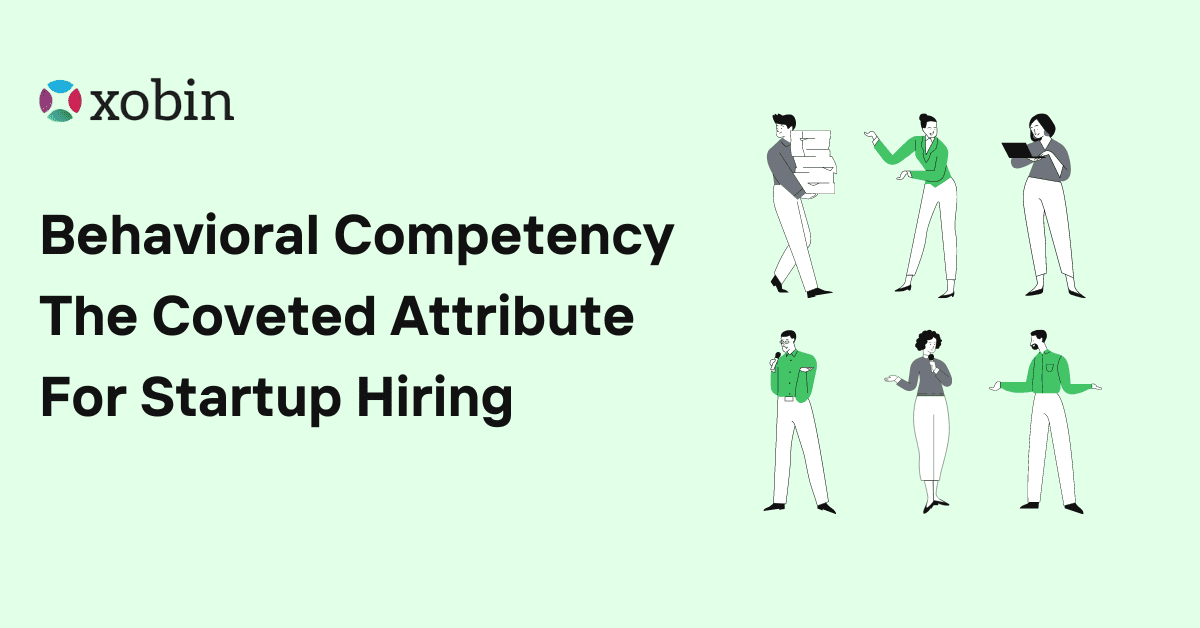Hiring is one of THE most crucial decisions in the journey of a startup. As a startup founder, you would have toiled for months in building the product, raising investment and have successfully reached a point where you now could afford to hire the first few employees for your startup. And it is not surprising when the founders look for candidates with excellent technical skills / domain skills and analyze as to what they could bring to the table.
Table of Contents
But this hindsight can (may) cause you to hire someone who is qualified but a bad fit overall for the company. In a startup, where innovation, agility, sense of ownership, integrity and Emotional Intelligence are key, startup founders need to look for candidates with impeccable soft skills and behavioral competencies even before assessing the technical prudence of the candidates.
As right articulated by Peter Schutz, the former CEO of Porsche,
Hire Character, Train For Skill
It is not always about the right skill set, but the attitude, drive and character (which cannot be trained) outweighs the technical skills.
A few notable startups have prioritized behavioral attributes of candidates while hiring.
With the startup attrition rates being more than 50%, its high time startup founders stop relying on the gut feel and make a data-backed hiring decisions by assessing the true culture-fit of the candidates.
Now let’s look at the top high demand behavioral competencies that every startup founder needs to foresee before bringing their new hires on board.

Behavioral Competency #1: Communication
Every single day at a startup is a hustle, and everyone is expected to wear multiple hats. A typical employee at a startup works across functions, assisting sales and solving queries of customers. Hence, a candidate is expected to understand, comprehend, and communicate ideas with the customers as well as the co-workers.
Behavioral Competency #2: Focus
You need employees who can really focus on your startup’s mission and align with the direction of your vision. Just like you, they must be able to set long and short-term goals with respect to the growth of the company and themselves. Mastering this core competency means being able to effectively visualize, develop, and communicate your mission and goals with your entire team. Establish your primary focus and make sure that your whole team understands how each of their roles aligns with the end goals of your company.
Behavioral Competency #2: Entrepreneurial Empowerment
Startups are filled with entrepreneurial individuals who believe in their work and want to make a significant contribution to their company and community. Please take advantage of their talent and vision by empowering them to make a difference in your company. Allow them to set their own goals that are consistent with company goals, and give them the freedom to do their jobs and resolve issues according to their work style.
Help employees feel confident in their ability to be successful in their careers, make decisions, lead others, and give them ownership of their responsibilities. In a startup where many employees are busy with multiple responsibilities, the ability to work independently and effectively is essential.
Behavioral Competency #3: Communication and Opportunity Recognition
Both large and small companies can have bad communication channels. Make sure that all of your employees are well informed by putting multiple strategic communication channels in place (email, newsletters, etc.). Invest time in communicating information regularly and consistently. If your startup is based virtually, invest in project management software.
If your startup is office-based, have meeting rooms and inspire a culture of open collaboration across the floor. Ensure that everyone is kept informed about new developments, even if they are on other teams, and that all information shared is professional and appropriate.
Employees in a startup should be adept at recognizing and seizing profitable business opportunities, such as potential new clients, suppliers, and partners. And they should be able to take calculated risks to pursue the kind of valuable opportunities that will lead to achieving business goals.
Startups need to be agile and innovative. The capacity and desire to develop and support something new is one of their great strengths. In order to be creative, startups need employees who are personally invested in developing new products, services, methods, or approaches. They should actively propose new ideas and technologies to accomplish your goals better. This kind of non-technical competency also involves working well with others in order to innovate.
Behavioral Competency #4: Stress Management
Startups are often high-stress environments, especially since one employee is likely to be in charge of multiple jobs. Startup employees need to have diverse skills and be able to handle many projects, clients, and tasks at once.
This means that being able to function when under duress is important for startup work efficiently. In addition to being able to remain calm under stress, employees should also maintain self-control, even when being provoked.
Finally, having this type of non-measurable competency also entails an understanding of self; employees should know their limits and manage their behaviors to avoid or reduce stress.
Behavioral Competency #5: Flexibility
Startup employees must often wear many “hats.” Your graphic designer may also have to create copy for marketing pieces. The general manager of a winery may sometimes have to work in the tasting room and take care of customers.
In order to succeed in a startup environment, employees need to be flexible in terms of their willingness to try new and different tasks and approaches. They must be open to others’ perspectives and be able to switch between strategies and methods when needed.
Is your candidate’s startup ready?
Assess their Emotional Intelligence and Behavioral Attributes using Xobin’s pre-built psychometric and situational judgment assessment!Get a personalized demo from us!






